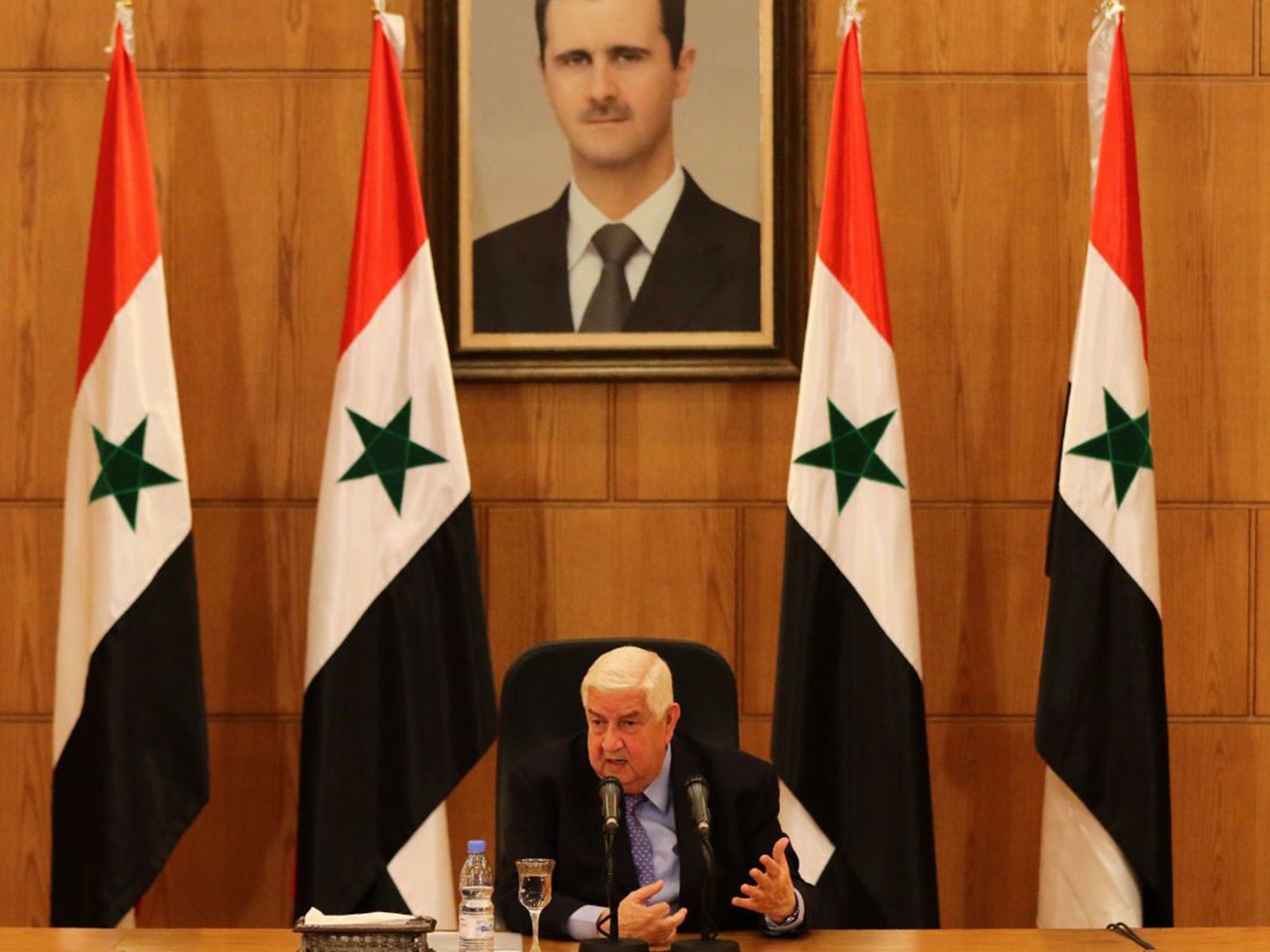Syria rules out discussion of presidential elections at Geneva peace talks
The country's government has also criticised the UN envoy overseeing negotiations, which begin on Monday

Your support helps us to tell the story
From reproductive rights to climate change to Big Tech, The Independent is on the ground when the story is developing. Whether it's investigating the financials of Elon Musk's pro-Trump PAC or producing our latest documentary, 'The A Word', which shines a light on the American women fighting for reproductive rights, we know how important it is to parse out the facts from the messaging.
At such a critical moment in US history, we need reporters on the ground. Your donation allows us to keep sending journalists to speak to both sides of the story.
The Independent is trusted by Americans across the entire political spectrum. And unlike many other quality news outlets, we choose not to lock Americans out of our reporting and analysis with paywalls. We believe quality journalism should be available to everyone, paid for by those who can afford it.
Your support makes all the difference.Syria’s government has ruled out any discussion of the presidency or presidential elections at peace talks that are scheduled to begin on Monday in Geneva, and has criticised the UN envoy overseeing the negotiations.
In a sign of the challenges facing diplomats trying to build on a ceasefire deal in Syria, the main opposition group accused Damascus of trying to stop the talks before they had started.
The Foreign Minister, Walid al-Moualem, confirmed his government’s participation in the talks, but said they would fail if the opposition had “delusions that they will take power in Geneva that they failed to take in battle”.
He also criticised the UN envoy Staffan de Mistura for already presenting an agenda for the talks and for his comment that presidential elections would take place in 18 months. “The government delegation will reject any attempt to put this on the agenda,” Mr Moualem said at the news conference.
“We will not talk to anyone who talks about the position of the presidency … I advise them that if this is their thinking, they shouldn’t come to the talks.”
The talks will coincide with the fifth anniversary of a war that has helped to create one of the world’s worst refugee crises, and allowed for the expansion of Isis. It is part of the first diplomatic push since the Russian air force intervened in September to support President Bashar al-Assad, reshaping the war in his favour and helping Damascus to reclaim significant areas in the west of the country.
The ceasefire agreement, brokered by the United States and Russia, has been more widely respected than many expected, although fighting has continued on some important front lines, including near the Turkish border. The Russian Defence Ministry said it had registered 10 ceasefire violations in the past 24 hours, but the truce was largely being respected.
The opposition High Negotiations Committee (HNC) has also confirmed its attendance at the talks and praised an agenda that centres on governance, a new constitution and elections. The HNC wants to focus on a transitional governing body with full executive powers, as outlined in a 2012 Geneva communiqué.
A UN Security Council resolution approved in December called for the establishment of “credible, inclusive and non-sectarian governance”, a new constitution and free and fair elections within 18 months.
The HNC’s chief negotiator, Mohammed Alloush, was cited as saying he had come to Geneva to negotiate a transition body without President Assad in power. Another HNC member, Monzer Makhous, said Mr Moualem was “putting the nails in the coffin of Geneva”.
Mr Moualem indicated that a “national unity government” was the most on offer – an idea ruled out by the opposition HNC.
Mr Moualem said Mr de Mistura must be neutral and objective. The government delegation would be willing to discuss the agenda, he said, and would travel to Geneva today. But it would return to Damascus within 24 hours if the other side did not show up, he added.
As far as the government was concerned, “political transition” meant a transition from the existing constitution to a new one, and from the existing government to a new one with participation from the other side. Diplomacy has been complicated by disputes over who should be invited to negotiate with the government. The Kurdish PYD party, which holds sway over wide areas of northern Syria, has so far been excluded from the talks in line with the wishes of Turkey – which sees the PYD as an extension of the PKK, a Kurdish group fighting for autonomy inside Turkey.
Mr Moualem claimed the Syrian army and the Kurds were in “one trench” fighting Isis, apparently in reference to the YPG militia that has been battling Isis in northern Syria.
However, he ruled out the idea of federalism, one of the ideas backed by the PYD and mentioned by a Russian minister as a possible model for Syria.
Reuters
Join our commenting forum
Join thought-provoking conversations, follow other Independent readers and see their replies
Comments